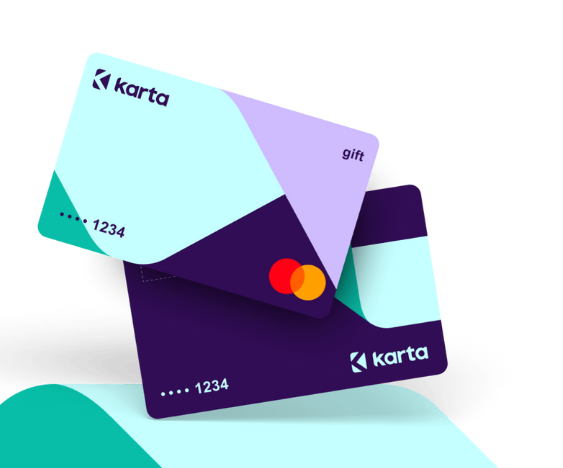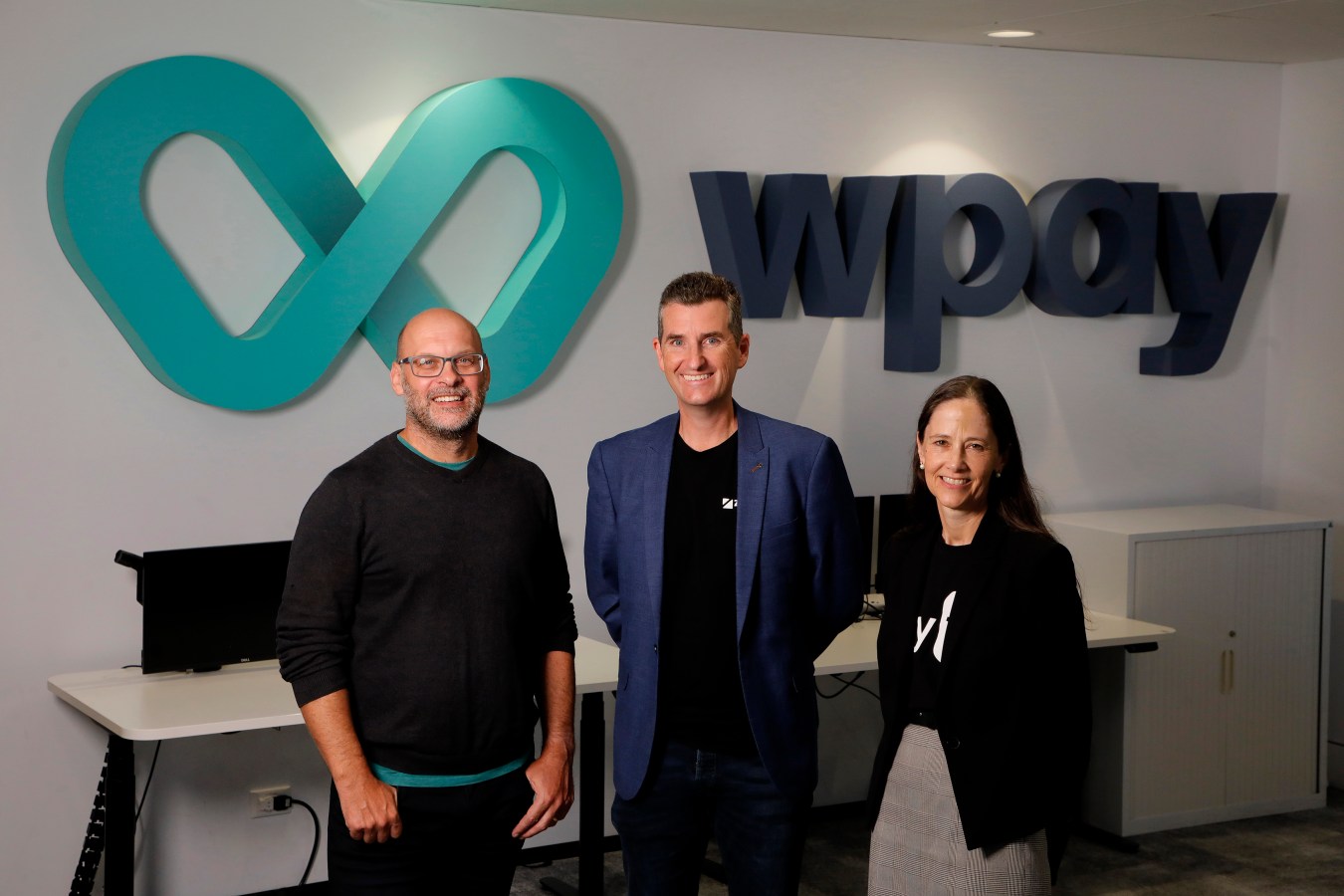The company, which says it’s revolutionised the gift card, will become the first-ever non-bank private label issuer in the US to process transactions on VisaNet.

David Anderson and Clare Kinsey, co-founders of Australian-founded gift card platform Karta, are in San Francisco rolling out their partnership with VisaNet, the main payment network of the Visa brand. Once complete, it will make Karta the first-ever non-bank private label issuer in the US to process transactions via the network.
The partnership represents a big opportunity for scale for Kinsey, an ex-American Express product marketing executive and Anderson, a serial entrepreneur an ex-Red Balloon executive, who launched Karta in May 2022, their second venture together after the first folded in January 2021.
“At the very end of that experience, we pivoted into gift cards,” Kinsey says. “I have a payments background, and I knew the pre-paid piece was a lot more profitable than the premise of our current startup. And Dave had all that gift card experience – one thing led to another, and we continued to work with each other on Karta.”
And the pair claim gift cards have significant potential, though that’s backed by research: when they are core to a retailer’s brand or digital strategy, gift cards can improve cash flow, encourage new and repeat purchases and drive loyalty, a 2023 Forrester Research report found. Also, 65% of holders spend an extra 38% on top of the value of the card, a National Retail Federation Gift Card Spending survey found.
But despite the size of the opportunity, and the market – it is roughly US$1 trillion in terms of the size of annual spend – less than 3% of retailers are actually in the business of gift cards, largely because they’re priced out. Anderson says big retailers like Coles or Woolworths take about 20% of the value of gift cards sold in stores, and so Karta’s biggest drawcard for merchants became its $0 take-home fee.
“That’s where we saw an opportunity – we wanted to democratise this technology,” Anderson says. Instead of a cut of the purchase value, Karta earns revenue on the payments its transacts, and interest on the funds stored on its cards.
Related
Its patented technology is currently sold in Big W stores nationwide, and it has powered 200 retailers with their own digital gift cards which can be used at over 5,000 stores. It’s also enabled 15 shopping centres in Sydney to power their own digital gift card programs, and featured its tech at the 2023 Australian Open.
“We can actually turn gift cards into an experiences as well, which is one of the things we’re looking to build out further with Visa,” Anderson says.
The company, which has around 32 staff members, recently raised more than $21 million in pre-seed funding, $20 million of that invested by Commonwealth Bank. That CBA funding was to deliver an API that would connect its business network with extra value from the some-9 million customers that visit the bank’s app each month.

“We’re like the pipes that connect those two opportunities together via the gift card mechanism,” Kinsey says.
But Karta has since doubled-down on its B2B strategy, working with institutional partners to launch through their platforms. Nowadays, its biggest customers are banks like St. George, American Express, Westpac, Bank of Melbourne, Bank of South Australia, and soon, NAB.
And its VisaNet partnership represents its next major step. The company developed an API-based solution that lets shoppers scan, select and buy gift cards from participating retailers digitally and physically, and any business that accepts Visa gains access to a new revenue channel. (VisaNet connects more than 80 million merchants in more than 200 countries.)
“It’s a boon for VISA merchants who will be able to issue Gift Cards that consumers like and can instantly use, are digitally secure, and also deliver a treasure trove of insightful shopping preference data. A win-win for all stakeholders,” Liza Gillooly, global director of FinTech BD Visa, says.
It also means Karta is expanding into the US this side of Christmas – something Kinsey and Anderson say is a big opportunity for scale.
“We’re going into 100%-plus growth. We’re currently in double-digit growth from our Australian launches,” Kinsey says. “But the whole premise of tokenisation and using your mobile wallet, which Australia has led the way in, is where America is really starting to catch up. And our timing is sort of brilliant, because this is also a big objective for Visa as well.”
Looking ahead, the pair’s plan is to be the biggest gift card network in the world – a large mission, but one the company hopes will be executed with the help of VisaNet.
“It’s the suits and the t-shirts working together effectively,” Kinsey says. “The perfect example of incumbents and disruptors leaning in together and innovating.”
Look back on the week that was with hand-picked articles from Australia and around the world. Sign up to the Forbes Australia newsletter here or become a member here.



